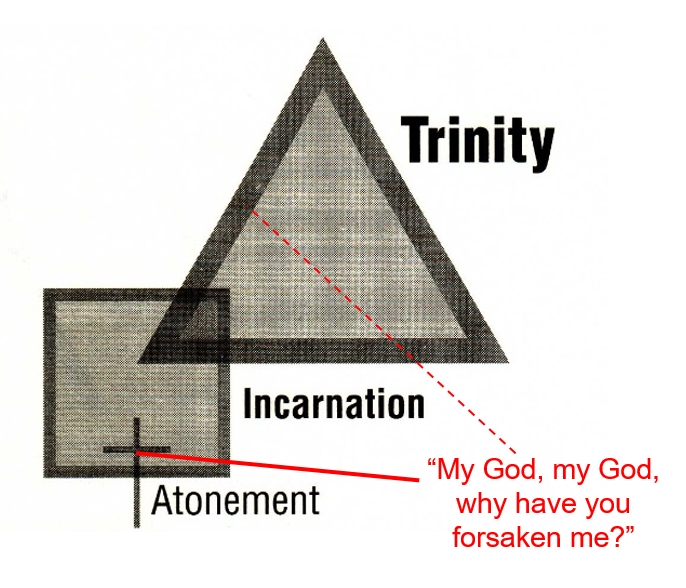I wrote this blog post about Christ on the cross for Tuesday of holy week precisely so people could have a few days to read it & digest it before the weekend. My goal is to equip believers to speak well and hear correctly as we come to the cross. http://scriptoriumdaily.com/godforsaken-for-us/">https://scriptoriumdaily.com/godforsak...
What I& #39;m recommending is some self-policing of our language. The reasons go pretty deep (major doctrines are involved), & the background is stark (classic doctrine versus recent deviations), but for most people it& #39;s a fairly minor adjustment to how we talk about the cross.
When teaching about Christ& #39;s cry, "My God, why have you forsaken me," stick to the given terms (God) rather than shifting to Father-Son terms. Partly because the latter aren& #39;t in the key text, & partly to keep the focus on where the action is.
The action is on the cross, where the Son has taken human nature as his own & is atoning for its sin. It& #39;s unhelpful to divert attention to the eternal Trinity, & misleading to suggest God& #39;s being & identity hang in the balance. The "forsaken location" is down here, not in there:
Some people have asked me about hymns & childrens& #39; Bibles written in the last few decades that make this move of directing our attention to the cross as a Father-Son relation breach. Probably they aren& #39;t instances of false teaching, but of a tone or tendency that needs guidance.
Here& #39;s what I mean: If I& #39;m worshiping in a church that regularly teaches a sound, biblically orthodox doctrine of God, w/prayers & sung worship that extend & reinforce it, I can sing "the Father turns his face away" with no danger of thinking the Trinity is coming apart.
(There& #39;s no way Townend was thinking the Trinity came apart, or could come apart. He was picking up, & elevating in his art, the way Christians talked in the early 90s. Hey, wouldn& #39;t it be wicked awesome if we could all hear that kind of talk as "so 90s," that is, a bit dated?)
A well-nourished Christian mind will easily make the adjustment, subliminally filing a line like that under "atonement" rather than "statements about the being of God." What will help most is if teachers stop using phrases that point to inner-trinitarian negotiation here.

 Read on Twitter
Read on Twitter


